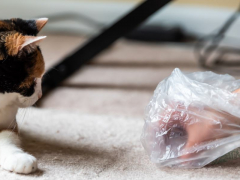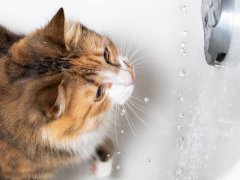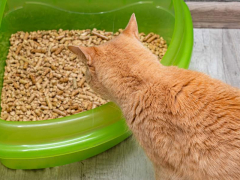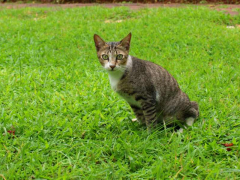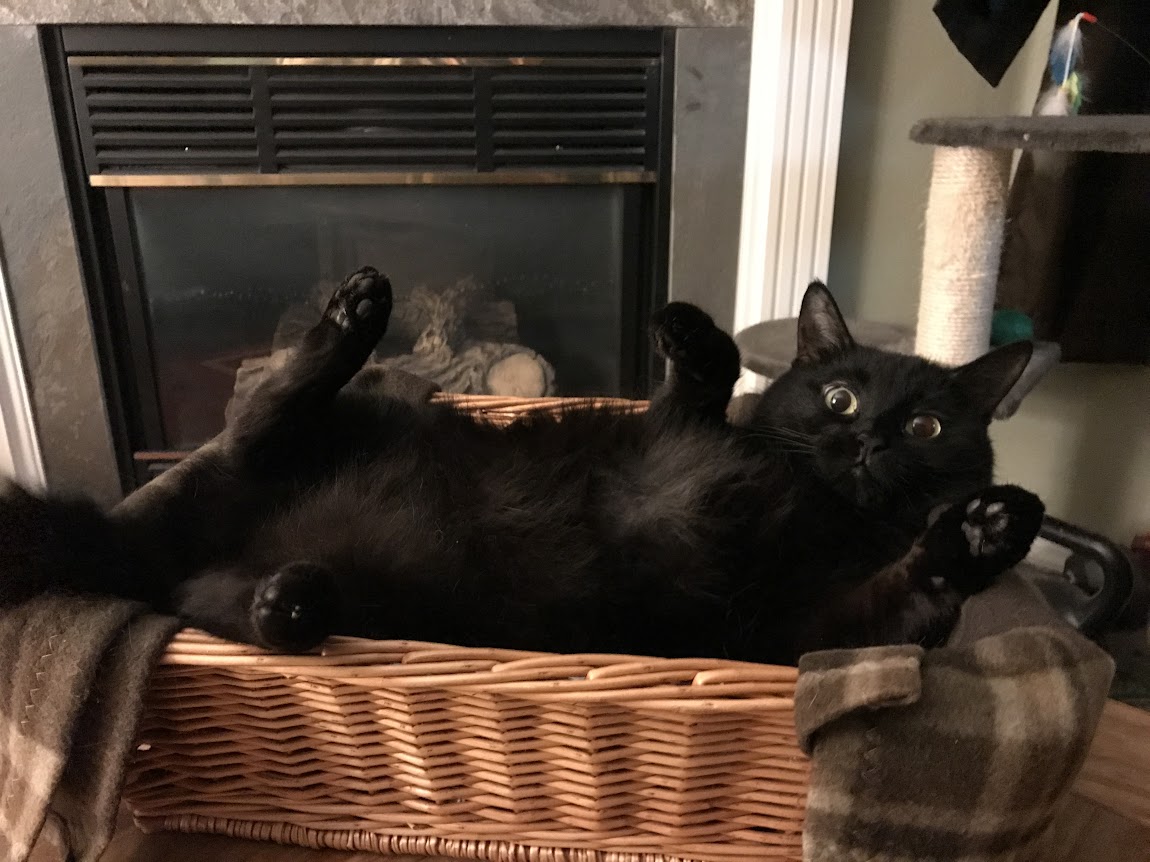
Taylor Le / Cats.com
When you share your home with a feline family member, you get to know their habits and behaviors. While some of their little quirks might make us chuckle and are part of what makes us unique, a distinct change in the way they act could be a sign that something is wrong.
Let’s find out what it means when your cat is acting weird, and when you should visit the veterinarian.
What Is Normal Behavior for a Cat?
Cats can be funny and a little odd – they make a range of noises, from purrs and meows to yowls and chatters. They can also have wild moments of zoomies where they race around with wide eyes and dilated pupils! So, when considering whether you should be concerned about your cat’s behavior, it’s important to take it in context.
If your cat has always woken you up at night by racing around and making odd noises since a kitten, you might need to read 6 reasons your cat makes weird noises at night, but there may not be anything wrong with them!
However, changes in your cat’s behavior, including their eating habits, drinking habits, vocalizations, toileting, activity levels, and general demeanor could indicate an underlying health issue or behavior concern. Getting to know what’s normal for your cat means that you’ll be best placed to notice any changes and seek veterinary advice early if needed.
What Can Cause a Change in Your Cat’s Behavior?
Worried that your cat won’t stop meowing, or wondering why your cat is hiding and acting weird? Here are some potential reasons behind your cat’s strange behavior:
1. Your Cat Is in Pain
Pain can cause a variety of changes to a cat’s behavior. In general, a painful cat may act subdued, withdrawn or be less active. Regardless of where the pain is, they may eat and drink less, and they might show aggressive behavior if you try to touch them. They’re not being grumpy, they’re just sore and protecting themselves.
Sometimes, the pain symptoms your cat shows will help to localize where the discomfort is. For instance, a cat who is dropping food while they’re eating or dribbling may have pain in their mouth, while a cat who is limping would likely have pain in their leg or foot.
This means that pain can account for a wide range of behavior changes and is one of the main things your veterinarian would need to rule out when trying to find out why your cat’s acting weird.
2. They’re in Season
A cat in heat acts very weirdly, and I regularly see female felines in the clinic or speak to worried pet owners on the phone when their cat has their first obvious season! When a cat is in season, they might vocalize loudly, which can be distressing for cat owners because they may think their cat is in pain. They might also writhe around on the floor a lot, or contort into strange positions. Cats in heat may also change their behavior with their owners, becoming more clingy or affectionate.
While these behaviors might give the impression that something is very wrong, for unneutered female cats seasons are completely natural, and beware that your female cat (and any local tom cats) will be determined and persistent when it comes to mating! Thankfully, if you don’t intend to breed from your female cat, booking them in for neutering will be less stressful all-round!
3. Your Cat May Have Urinary Problems
Feline urinary issues can definitely change a cat’s behavior. If your cat has cystitis (inflammation of the bladder) you might notice them spending lots of time squatting in the litter box, but if you look closer, you might find that they’re only passing tiny spots of urine, and there might be blood. Cats with cystitis may also pee in unusual places like the bath, sink, laundry, or sofa.
They haven’t forgotten how to use the litter tray, they’re just not feeling themselves at the moment. A urinary tract infection is less common than cystitis in cats, but it does occur, and the symptoms are similar. If your cat is showing any odd behavior when it comes to passing (or not passing) urine, it’s important to get them checked by a veterinarian, especially if they’re not passing any urine at all.
A blocked bladder, where the bladder can’t empty due to a blockage, is a life-threatening emergency. Your veterinarian will also be able to determine the underlying cause of the urinary symptoms, whether it is stress, inflammation, an infection, bladder stones, or something else.
4. They’re Constipated
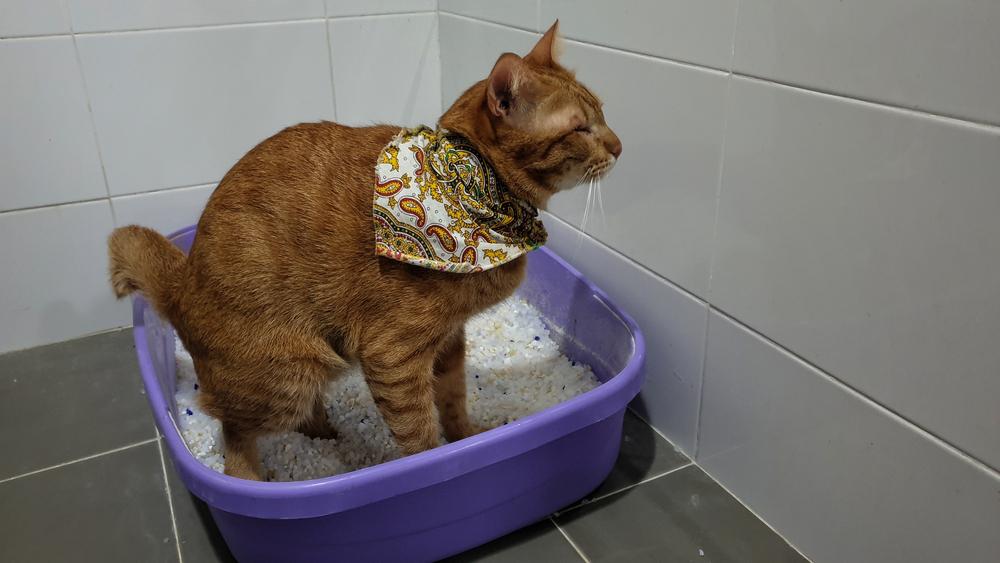
A change to litter box habits can be a distinct sign that all is not well with your cat – either with their health or their general wellbeing.
A blocked bladder, as described above, can easily be mistaken for constipation, because both conditions will cause straining with no urine or feces passed. If your cat hasn’t passed any poop recently, if you’ve noticed that their most recent poops have been hard, or if you notice them unproductively straining, it’s best to seek veterinary advice.
5. Your Cat Is Responding to a Change in Their Routine or Environment
Cats like routine and can be quite sensitive to any changes to it or their environment. New pets, new babies, new kitchen appliances, a new home, loud noises like building work, and strangers visiting the home are all examples of events that could cause your cat stress or anxiety, which could affect their behavior.
Separation anxiety, where your cat gets particularly anxious when their owner leaves the house and may behave destructively, is particularly common since the COVID-19 pandemic when our furry family members got used to having us around all the time.
If your cat’s behavior has changed recently, think about any particular events that could explain it and then seek advice from your veterinarian.
6. They’re Scared
When we are scared, our behavior is different. We’re unlikely to want to eat, we certainly won’t want to play. In fact, we’re most likely to just hide away and be as quiet as possible. So, it’s not surprising that if your cat has had a scary or traumatic experience that has left them feeling afraid or shaken up, they’re most likely to hide and not come out.
If your cat goes outdoors, there’s more scope for what could have caused the fright – a fight with another cat, being chased by a dog or other larger animal, a scary fall, a near miss with a car, etc. If your cat doesn’t go outside, that doesn’t mean they can’t have been spooked by something, though.
If your cat doesn’t get a bit braver over the following few days, if they seem unwell or aren’t eating or drinking, the veterinarian should check them over.
7. Your Cat Could Have Fleas
Fleas can make your cat feel really itchy and irritated and the symptoms can come on out of the blue. They might suddenly get the sensation that there’s something nibbling or crawling on them and turn around to frantically attack themselves. This can look pretty odd, but thankfully, your veterinarian will be able to spot fleas easily and give the necessary treatment.
8. They Have Hyperthyroidism
Excessive thyroid hormone production can make your cat ravenously hungry, sometimes more thirsty, and often more vocal and erratic. Despite their incredible hunger, they often experience weight loss. If your cat didn’t previously, they might suddenly start waking you up by meowing loudly on the landing or wandering into your bedroom at odd times.
A blood test will tell the veterinarian whether hyperthyroidism is the cause of your older cat’s symptoms, and they can recommend an appropriate treatment.
9. Your Cat Could Have Cognitive Dysfunction
Just like humans, cognitive dysfunction can cause disorientation, apparent forgetfulness, and strange behavior in senior cats too. If your cat is older and you notice them getting a little slow, less confident, or vacant, or they seem to suddenly meow a lot, poop outside the tray, and forget where their food bowl is, they may have cognitive dysfunction.
What Should You Do if Your Cat Is Acting Weird?
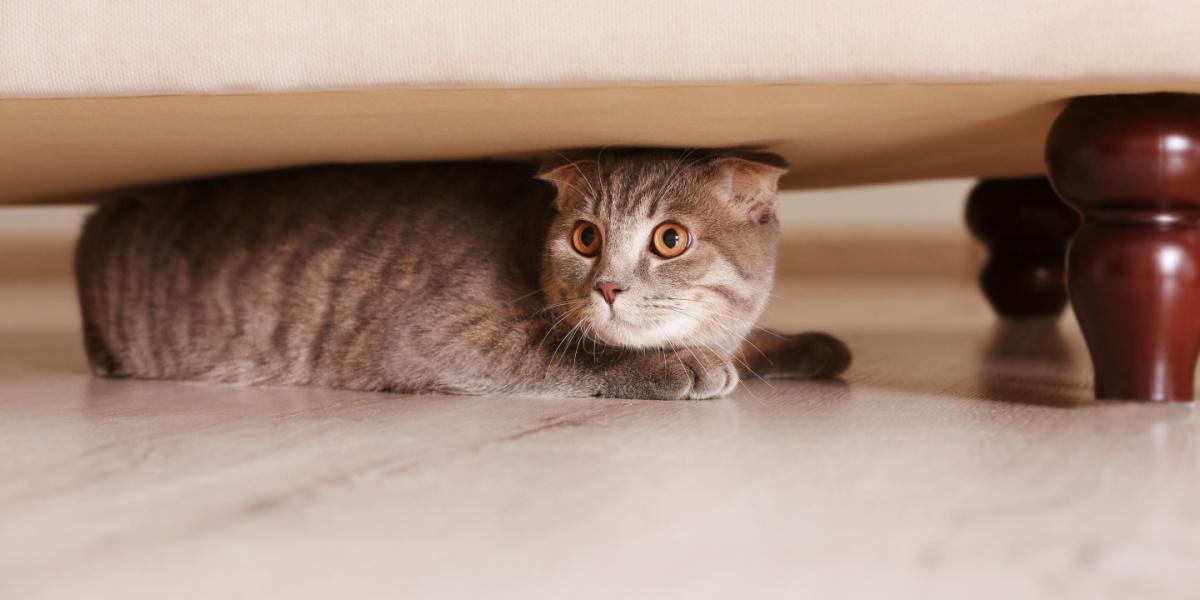
Changes to behavior can be sudden, such as stopping eating or hiding under the bed, or more gradual, such as slowly becoming less responsive to their owners.
If your cat is acting weird, you can use the list above to try to determine any obvious cause. However, if their behavior is particularly unusual, or they seem unwell, it’s important to get them an appointment at the veterinary clinic as soon as possible.
Don’t be afraid that you could be wasting the veterinary staff’s time, as it could turn out to be something serious, and if it doesn’t, the staff will be pleased to have reassured you.
What Can You Do To Stop Your Cat From Acting Weird?
To stop your cat from acting weird, you first need to find out why. This may mean a trip to the veterinarian. If the underlying cause is a urinary issue, constipation, pain, or an illness, the veterinarian will prescribe treatment to help, which might involve a stay in the hospital.
If the cause is behavioral, like stress, anxiety, or fear, you may be able to make changes in their environment to help. Cats like lots of hiding places, especially elevated ones, and easy access to resources such as food bowls and litter trays. If your cat has anxiety which is affecting their wellbeing and needs extra help, your veterinarian may prescribe anti-anxiety medication or recommend calming or pheromone sprays or plug-ins. They’ll also advise on how to address the underlying cause or refer your cat to a feline behaviorist, if appropriate.
Summary
Normal cat behavior might seem strange to us, even though it’s completely natural and instinctive. However, if your cat’s behavior has changed, this could indicate an underlying health or behavior problem. Therefore, it’s important to know your cat’s behavior, spot any changes, and seek veterinary advice promptly.
Related Conditions:
- Feline Idiopathic Cystitis: Causes, Symptoms, & Treatment
- Cat Separation Anxiety: Causes, Symptoms, And Treatment
- 12 Warning Signs Your Cat Is In Pain
- Cat Constipation: Causes, Treatment, & Remedies
